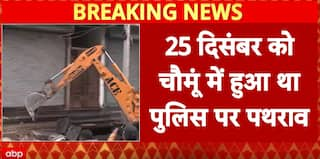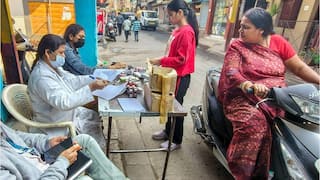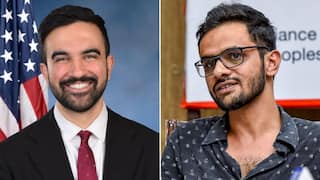US State Department Report Highlights Human Rights Violation In Manipur
"There were significant human rights abuses in Manipur after the outbreak of ethnic conflict," the US State Department stated in its report, released by Secretary of State Antony Blinken.

The US State Department came down heavily on India for human rights vioation in Manipur, harrassment of minorities, restrictions on freedom of expression and media, AFSPA, terrorism, and alleged unlawful killings, among others.
This came through by the US State Department in its 2023 Country Reports on Human Rights Practices: India, released on Monday.
"There were significant human rights abuses in Manipur after the outbreak of ethnic conflict," the US State Department stated in its report, released by Secretary of State Antony Blinken.
On Manipur Violence
The report talks about the ethnic violence in Manipur in detail, highlighting what had happened, the involvement of ethnic groups, how the human rights were abused amidst the violent clashes that has been ongoing for almost a year now, and also mentions PM Modi's comment on the whole issue, UN's involvement, and steps taken by the Indian government to bring the situation under control, among other things.
"The outbreak of ethnic conflict between the Kuki and Meitei ethnic groups during the year in India’s northeastern state of Manipur resulted in significant human rights abuses. Media reported at least 175 persons were killed and more than 60,000 displaced between May 3 and November 15," the report said.
Activists and journalists reported armed conflict, rapes, and assaults in addition to the destruction of homes, businesses, and places of worship. The government deployed security forces, implemented daily curfews, and internet shutdowns in response to the violence.
The US State Department report also mentioned how the Supreme Court criticised the failure of the Modi-led government and the Manipur state government in halting the violence and appointed officials to investigate incidents of violence in the state, ensuring the "delivery of humanitarian assistance and the rebuilding of homes and places of worship."
Speaking on the Ministry of External Affairs' response to media queries raised on the European Parliament discussing developments in Manipur last year, the report said that the Indian authorities had, at all levels, including the judiciary, are taking steps to ensure peace and harmony, and law and order to bring the situation in Manipur under control.
The report also talks about how the UN experts on September 4, 2023 urged the Indian government to step up relief efforts and provide timely action to investigate acts of violence.
It further said that the UN also urged the Centre to hold perpetrators accountable and foster a process of reconciliation between the Meitei, Kuki, and other impacted communities, who had been impacted the most amid the roaring violence simmering for almost a year now.
In view of the violence, the local human rights organisations, minority political parties, and affected communities hit out at the Centre for its delayed action directed towards stopping the violence and providing humanitarian assistance, it said.
Prime Minister Narendra Modi has described the incident as “shameful” and urged action on the case, it said.
List Of Human Rights Issues In India
Through the report the State Department stressed that there were various human rights issues based on "credible reports" such as:
- arbitrary or unlawful killings, including extrajudicial killings; enforced disappearances
- torture or cruel, inhuman, or degrading treatment or punishment by the government
- harsh and life-threatening prison conditions
- arbitrary arrest or detention; political prisoners or detainees;
- transnational repression against individuals in another country;
- arbitrary or unlawful interference with privacy;
- punishment of family members for alleged offenses by a relative;
- serious abuses in a conflict, including reportedly unlawful or widespread civilian deaths or harm, torture, physical abuses, and conflict-related sexual violence or punishment;
- government corruption;
- serious government restrictions on or harassment of domestic and international human rights organizations;
- extensive gender-based violence, including domestic or intimate partner violence, sexual violence, workplace violence, child, early, and forced marriage, female genital mutilation/cutting, femicide, and other forms of such violence;
- crimes involving violence or threats of violence targeting members of ethnic and caste minorities; and
- crimes involving violence or threats of violence targeting lesbian, gay, bisexual, transgender, queer, or intersex persons.
On Freedom Of Expression & Internet Freedom
The report also stated that there were "serious" restrictions in India regarding freedom of expression and media freedom. These include "violence or threats of violence against journalists, unjustified arrests or prosecutions of journalists, censorship, and enforcement of or threat to enforce criminal libel laws to limit expression," the report noted.
Talking about internet freedom in India, the report said that there were "serious" restrictions on internet freedom. Besides this, there was also a "substantial interference with the freedom of peaceful assembly and freedom of association; restrictions on freedom of movement and residence within the territory of a state and on the right to leave the country," the report added.
The report claimed that the government took "minimal credible steps or action" targeted towards identifying and punishing officials who might have been involved in committing human rights abuses.
"There were multiple reports of journalists and human rights activists being investigated in J&K, with at least 35 journalists reporting facing assaults, police interrogations, raids, fabricated cases, and restrictions on movement since 2019,” the report said.
The report said that earlier the independent media were active and expressed a wide variety of views, including those critical of the government.
However, "the law prohibited content that could harm religious sentiments or provoke enmity among groups, and authorities invoked these provisions to restrict print media; broadcast media; digital media platforms, including streaming services; and publication or distribution of books," the report said.
It added that the mutilation or defacement of the national flag was punishable by up to three years of imprisonment.
On Terrorism In India
The report also mentioned about terrorism in India and stated that the terrorists in Jammu and Kashmir, northeastern states, and the areas hit by Maoist terrorism, committed serious abuses including "killings and abductions of armed forces personnel, police, government officials, and civilians".
On Unlawful Killings Allegedly Carried Out By Indian Govt
The State Department also claimed that there were several reports claiming that the Indian government or its agents committed arbitrary or unlawful killings, including extrajudicial killings last year.
"Media reports often described these allegedly staged killings of accused individuals at the hands of police or security forces as “encounter killings,” the report said.
The report also stated that there were "allegations that police or prison guards killed prisoners and these killings were sometimes misclassified as suicides or deaths from natural causes."
Going into the depths of this issue, the report goes on to mention a case that happened on February 5, when a police official allegedly killed Dhaneswar Behera, accused of poaching. Six Odisha Forest Department officials were arrested for their involvement in Behera's death.
"The National Human Rights Commission (NHRC) conducted an investigation into Behera’s death and on August 27, directed the Odisha government to pay compensation to Behera’s next of kin for negligence on the part of government employees," the report noted.
As per the report, India has registered 813 cases of extrajudicial killings between 2016-2022, the most reported in Chhattisgarh, followed by Uttar Pradesh.
Citing nongovernmental sources, the report said that an army officer in Jammu and Kashmir (J&K) was convicted for one of the 813 cases documented during that period.
On AFSPA
AFSPA, Armed Forces (Special Powers) Act, is a parliamentary act granting special powers to Indian Armed Forces to maintain law and order using "deadly force" in state or union territory or region classified as "disturbed area." The act is implemented in a region and also grants the army power to arrest any person, whom it finds suspicious.
"Human rights organizations asserted the law violated the country’s constitution and continued to call for its repeal", the report said.
The report mentions that the Ministry of Home Affairs reduced the jurisdiction of the AFSPA in various districts of Assam, Manipur, and Nagaland in April, following improvements in the security situation in the northeast.
However, AFSPA remained in effect in other parts of Nagaland, parts of Arunachal Pradesh, Manipur, and Assam, and a version of the law was in effect in J&K.
Positive Developments On Issue Of Human Rights & Freedom Of Expression In India
The report also mentions some of the positive developments on the issue of human rights and freedom of expression and gathering in the year 2023, the duration of the report. Of the instances reflecting the same, the report talks about the Centre permitting Shia Muslims to take out a procession in Srinagar, marking the religious Muharram event.
"This procession represented the first government-sanctioned recognition of the event in Srinagar since it was banned in 1989. The government imposed some restrictions on the use of slogans or the display of logos of any banned organisations," it said.
India's Intolerance Towards US's Criticism
India has previously criticised the US for releasing reports on human rights and religious freedoms based on misinformation and flawed understanding. Motivated and biased commentary by some US officials only serves to undermine further the credibility of these reports, the Ministry of External Affairs had said last year.
Activists and journalists reported armed conflict, rapes, and assaults in addition to the destruction of homes, businesses, and places of worship.
India has previously said that interference in the country's internal affairs is unacceptable, and reflects a colonial mindset.
Related Video
Breaking: Jaipur Chomu Bulldozer Action Sends Strong Message Against Illegal Constructions





































